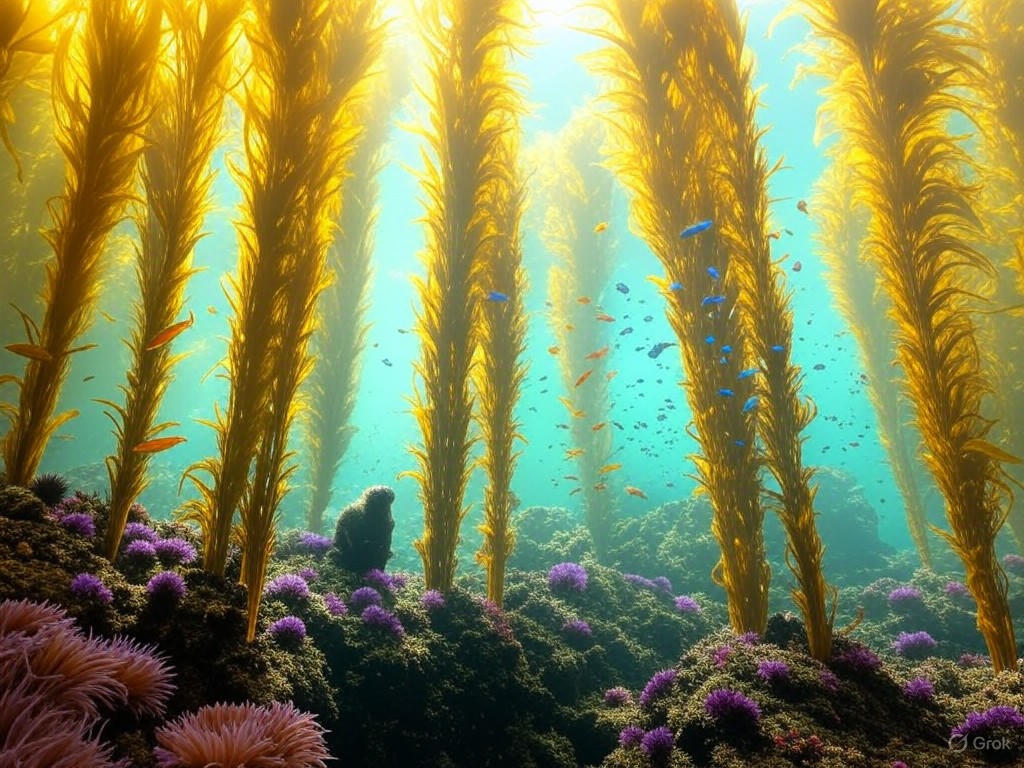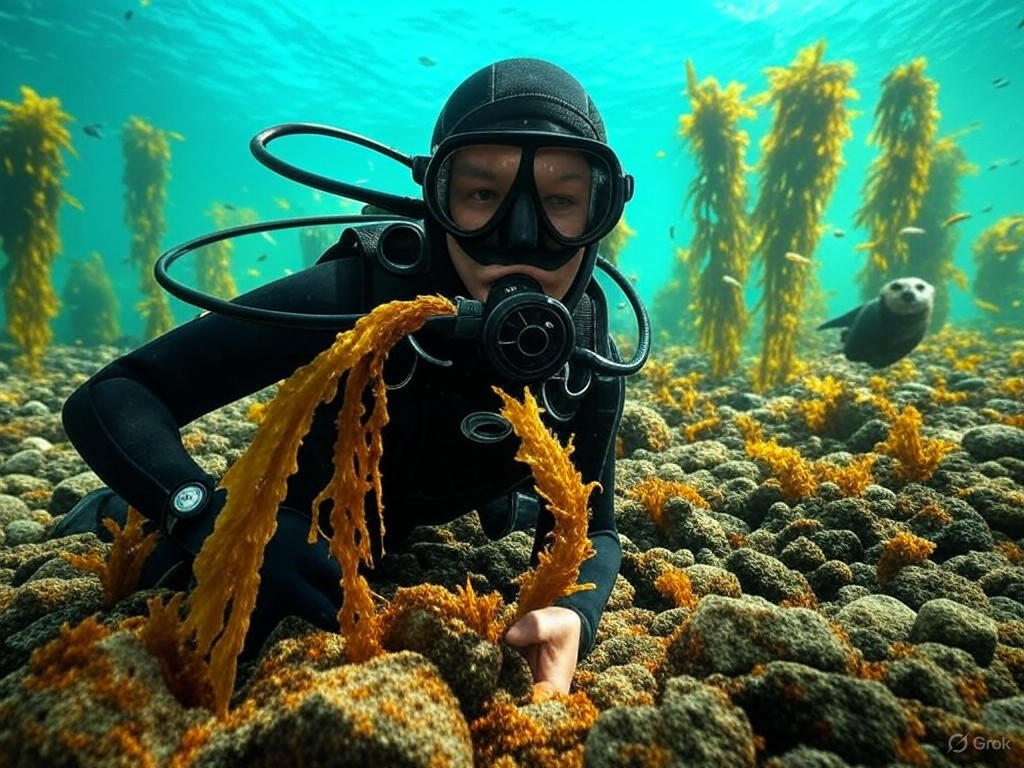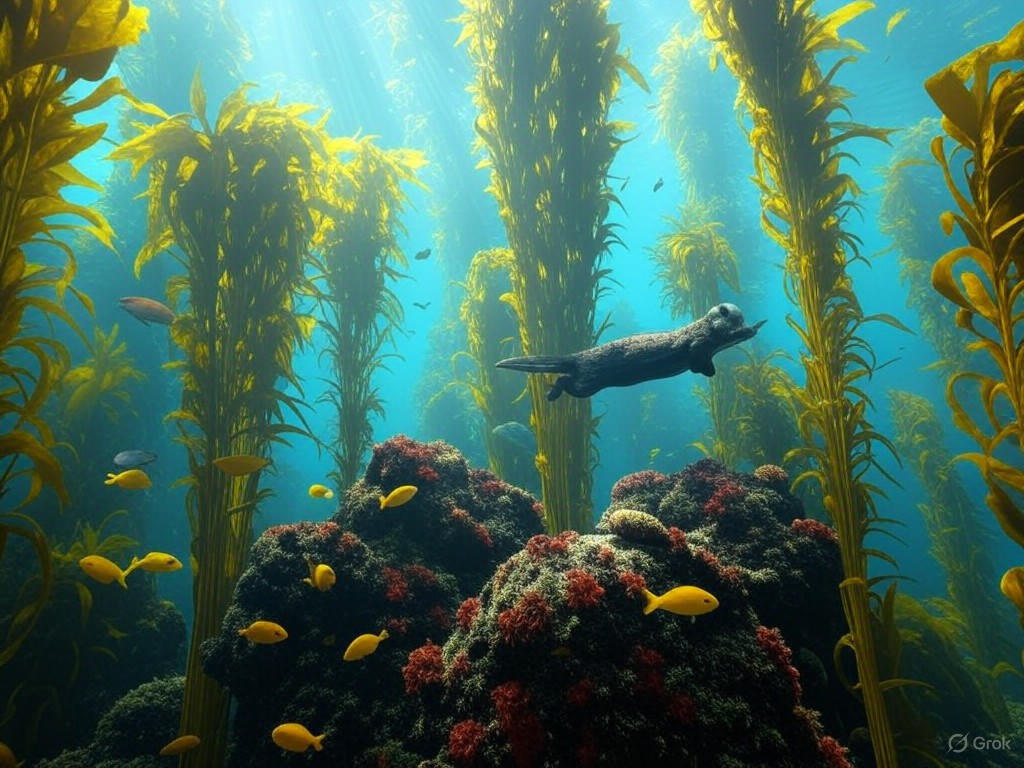Kelp Forests: Marine Biodiversity Hotspots
In the vast expanse of our oceans, kelp forests stand as ancient sentinels, weaving intricate ecosystems that sustain marine biodiversity and shield coastal communities from the relentless forces of nature. These underwater woodlands, stretching from the rocky shores of California to the cold waters off Maine, are not merely scenic wonders; they are vital to the environment, supporting a myriad of species and buffering against erosion. Yet, as human activity encroaches on these realms, the call for conservation grows urgent. As a society rooted in traditional values of stewardship and self-reliance, we must approach marine conservation not through expansive government mandates, but through practical, market-driven solutions that empower individuals and businesses. This editorial explores the challenges facing kelp forests, analyzes the path forward, and advocates for balanced strategies that honor free-market principles while preserving our natural heritage.

A dense kelp forest off the Pacific coast, illustrating the rich biodiversity that thrives in these underwater habitats, from colorful fish to elusive sea otters.
The Imperative of Kelp Forest Conservation
Kelp forests, those towering stands of brown algae, form the backbone of marine biodiversity. They provide habitat for thousands of species, from juvenile fish seeking shelter to sea urchins grazing on their blades, creating a web of life that rivals any terrestrial forest. According to environmental scientists, these ecosystems absorb vast amounts of carbon dioxide, helping mitigate climate impacts, while also stabilizing coastlines against storms and erosion National Oceanic and Atmospheric Administration (NOAA). Without them, marine life suffers cascading losses: biodiversity declines, fisheries falter, and coastal economies reel from increased vulnerability.
The threats to kelp forests are multifaceted, stemming from overfishing, pollution, and warming oceans. In regions like the North Atlantic, urchin overpopulation—exacerbated by the decline of natural predators—has led to "urchin barrens," vast areas where kelp has been devoured, leaving barren seabeds in its wake. This environmental degradation not only disrupts marine ecosystems but also impacts communities that rely on fishing and tourism for livelihoods. A 2022 report from the Wall Street Journal highlighted how such losses translate to economic downturns, with fishing yields dropping by as much as 30% in affected areas. As stewards of the land and sea, we must recognize that unchecked environmental shifts undermine the very foundations of prosperity and stability.
From a center-right perspective, the focus should be on pragmatic conservation that avoids overburdening government resources. Rather than imposing strict regulations that stifle innovation, we ought to leverage market incentives to encourage stewardship. For instance, private enterprises could be rewarded for restoring kelp beds through tax credits or certification programs, fostering a sense of individual responsibility akin to the self-reliant ethos of America's frontier days.
Analyzing the Challenges: Balancing Human Needs and Environmental Health
To understand the path to effective conservation, we must delve into the root causes of kelp forest decline. Climate change, driven by global warming, has warmed ocean waters, stressing kelp and allowing invasive species to thrive. In California's kelp forests, for example, rising temperatures have correlated with a 90% loss in some areas over the past decade, as documented in studies from marine biologists Marine Conservation Institute. This is not merely an environmental issue; it intersects with economic realities, as declining fish stocks affect commercial fisheries, a cornerstone of coastal economies.
Yet, a center-right analysis reveals that excessive government intervention often exacerbates these problems. Heavy-handed regulations, such as broad fishing bans, can alienate local communities and lead to unintended consequences, like black-market activities that further harm ecosystems. Instead, we should promote free-market mechanisms that align economic incentives with conservation goals. Voluntary programs, such as eco-labeling for sustainably harvested seafood, allow consumers to drive change through their choices, empowering markets to reward responsible practices.
Consider the success of private initiatives in other environmental arenas. In Australia, where kelp forests face similar threats, collaborative efforts between fishing cooperatives and conservation groups have restored degraded areas without relying on federal mandates The Nature Conservancy's Marine Program. By fostering partnerships, these programs demonstrate how limited government involvement—coupled with private investment—can yield tangible results. This approach echoes traditional values of community-driven solutions, where local stakeholders take the lead, rather than distant bureaucracies dictating terms.

Divers planting kelp seedlings in a restoration project, showcasing the hands-on, community-led efforts that blend science and practical action to revive marine habitats.
Evidence and Pathways Forward: Market-Driven Solutions in Action
Evidence from various sources underscores the efficacy of market-oriented conservation. A study published by the Heritage Foundation, a proponent of limited government, argues that incentive-based policies, such as cap-and-trade systems for pollution credits, have reduced environmental harm more efficiently than direct regulations. Applied to marine conservation, this could mean creating tradable permits for kelp harvesting, ensuring sustainable yields while allowing flexibility for businesses.
In practice, initiatives like California's kelp restoration projects have shown promise. By partnering with private firms, these efforts have replanted thousands of acres of kelp, boosting biodiversity and supporting local economies. One such project, funded through public-private partnerships, reported a 50% increase in fish populations within restored areas, as per data from regional marine surveys Pacific Marine Environmental Laboratory. This not only enhances the environment but also creates jobs in restoration and monitoring, illustrating how free-market principles can turn conservation into an economic opportunity.
Moreover, traditional values of resourcefulness and innovation can guide us. Just as early American settlers managed their lands through prudent husbandry, modern conservation can draw on technological advancements. Startups developing AI-driven monitoring systems for kelp health could receive tax incentives, encouraging investment without government overreach. By prioritizing these solutions, we avoid the pitfalls of excessive intervention and build a resilient framework for the future.
Conclusion: A Call for Thoughtful Stewardship
In conclusion, the preservation of kelp forests is not just an environmental imperative but a testament to our commitment to biodiversity, economic stability, and traditional values. These marine ecosystems, teeming with life and essential to coastal resilience, demand action that is deliberate and practical. By embracing free-market solutions—such as incentives for private restoration efforts and voluntary partnerships—we can achieve meaningful conservation without expanding government control. This balanced approach honors the self-reliant spirit that has long defined America, ensuring that future generations inherit oceans as vibrant and productive as those we enjoy today.
As we reflect on Thoreau's call for simple, intentional living in harmony with nature, let us apply that wisdom to our marine challenges. Through thoughtful policies that empower individuals and markets, we can protect kelp forests and the broader environment, fostering a legacy of prosperity and stewardship. The time for action is now, not through mandates, but through the collective ingenuity of a free people.

